It’s pretty obvious that psychological stress impacts on your physical health and skin, but exactly how they’re linked isn’t well understood. “Stress” is a bit vague and difficult to measure. But there’s more and more research on how stress impacts your body, and how reducing stress can help.
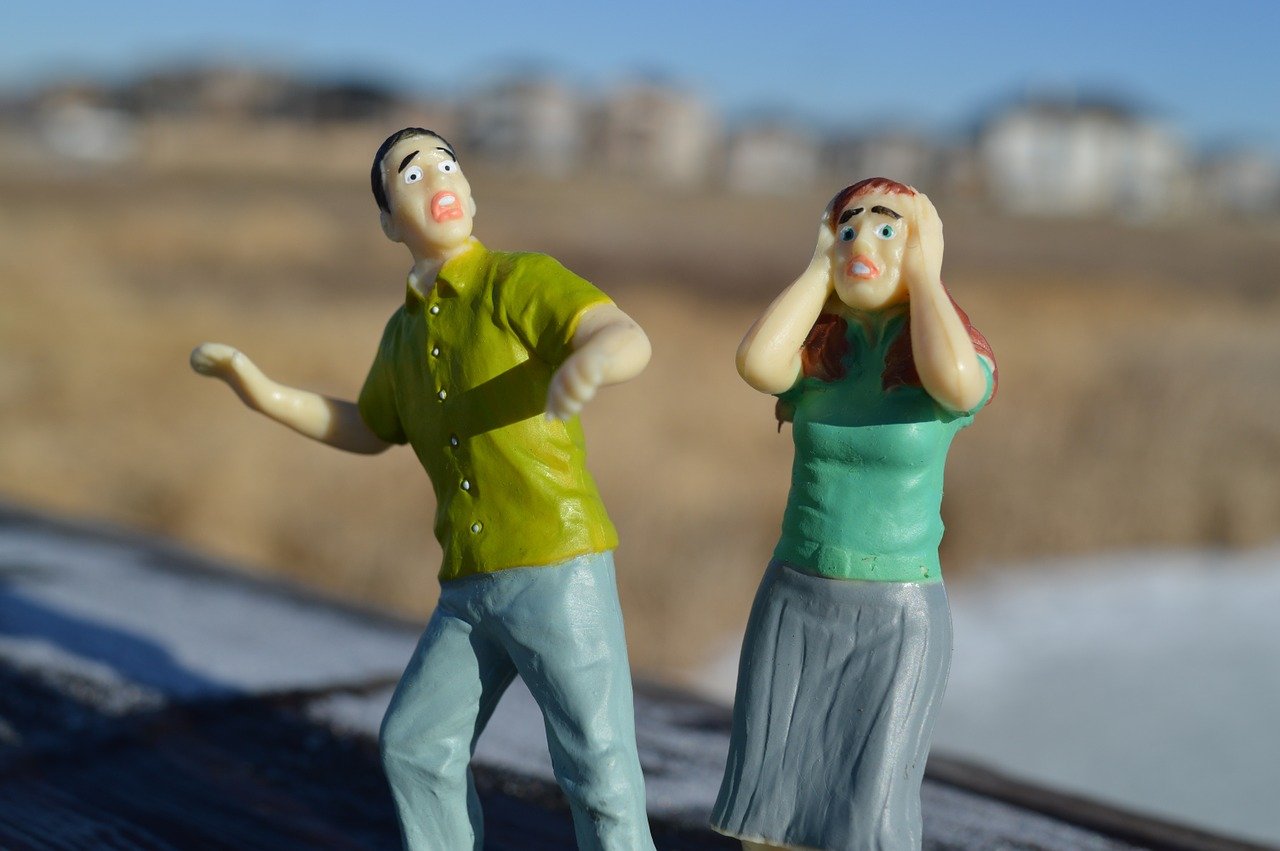
A small amount of stress can actually be a good thing. Humans have evolved over thousands of years to become quite adept at dealing with short-term acute stress, like escaping from alligators and mammoths. As part of our adaptation, a lot of our bodily functions actually perform better in periods of acute stress: your heart beats faster to transport more oxygen to your body, your liver products more glucose to fuel your muscles for a fight-or-flight response – your body essentially adjusts to give you the best chance of survival, and once you’re away from danger, your body can recover and replenish the stores it used up.
However, humans haven’t evolved to handle constant activation of the stress response. Late night emails, work deadlines, traffic jams and all the other irritating aspects of modern life contributes to a prolonged background of chronic stress. This leads to problems with your heart, immune system, digestive system, and of course, your skin as well.
How Does Stress Affect Your Skin?
Stress has been linked to flare-ups of psoriasis and atopic dermatitis, as well as breakouts. However, even if you don’t have these issues, your skin can still suffer when you’re stressed out!
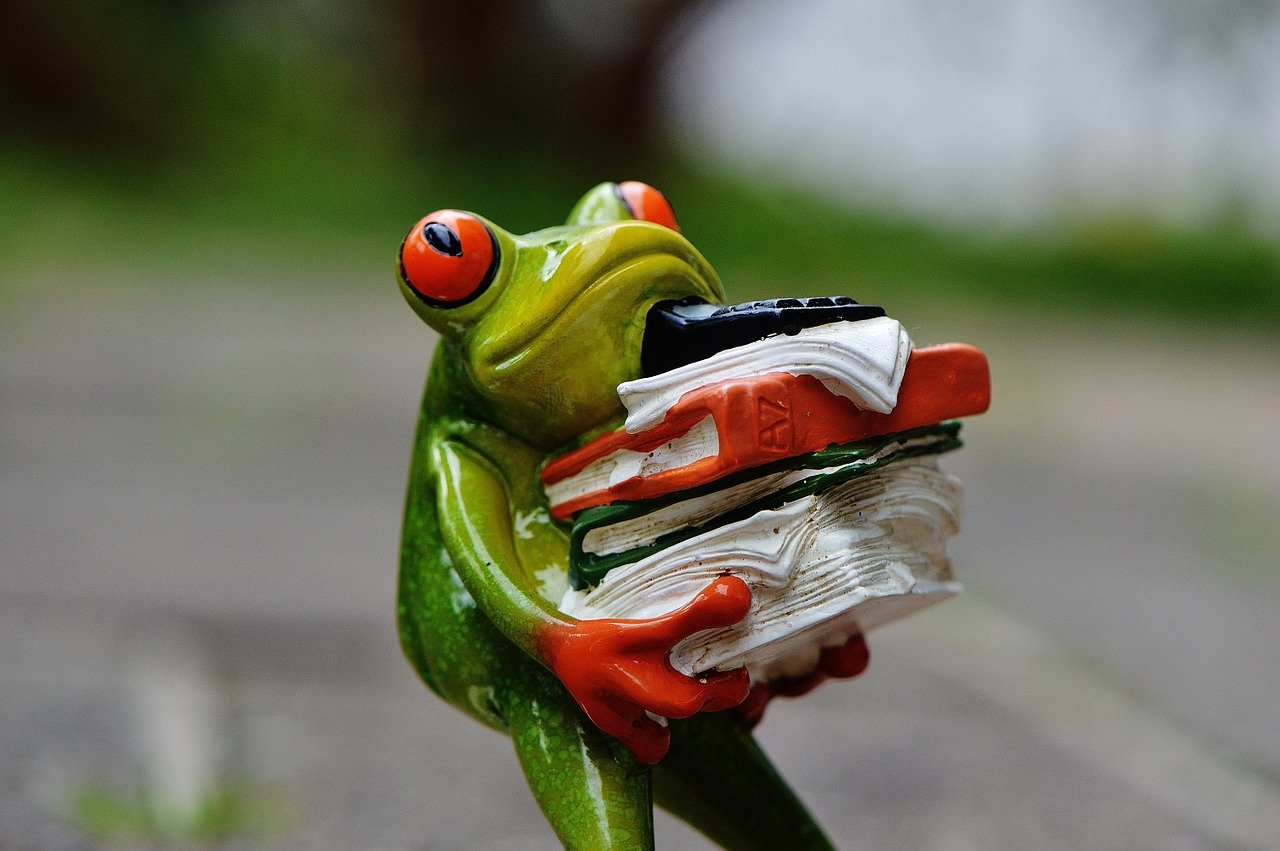
Chronic stress decreases the amount of lipids your skin secretes. Remember the brick and mortar structure of your skin, where the dead outer layers (stratum corneum) consist of dead cell “bricks” with oily lipid “mortar” in between? The oily lipids are necessary to keep your skin flexible and hold in water. Additionally, your skin produces less of the proteins that hold your cells together (corneodesmosomes). These effects combine to make the skin less cohesive and more susceptible to damage.
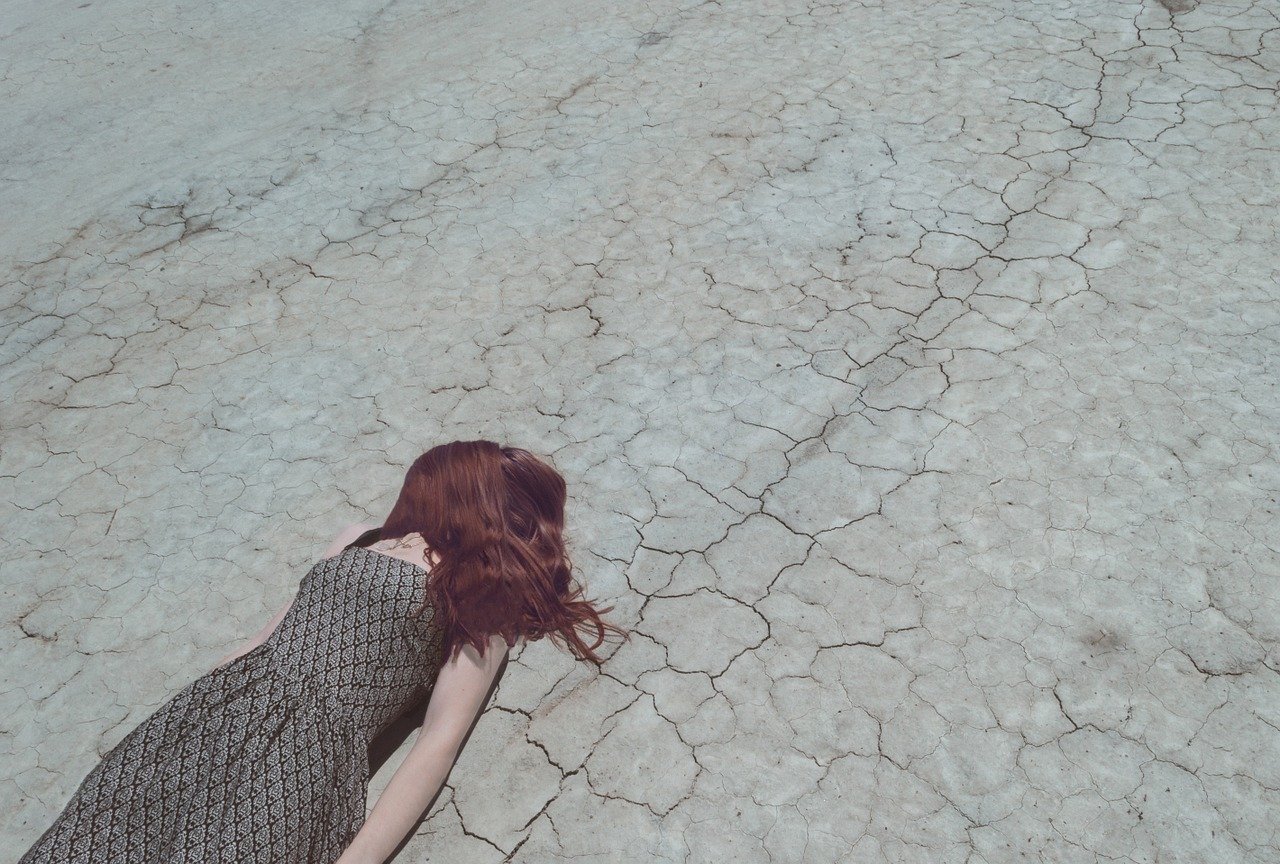
Chronic stress also causes the skin cell cycle to slow down, which makes your skin look dull and tired (increasing skin turnover is how hydroxy acids and retinoids give you glowing skin). It also slows down how quickly your skin recovers from damage. This damage includes both the obvious cuts and scrapes and pimples, but also milder damage like washing your skin with cleanser, which seems pretty mild but adds up quickly if you cleanse daily or twice daily. Together with the reduced lipids and corneodemosomes, this means your skin is more likely to be damaged, and it’ll take longer to recover.
(If you’re wondering about the mechanism behind these changes, it’s thought that stress increases the production of glucocorticoids like cortisol and neuropeptides like substance P.)
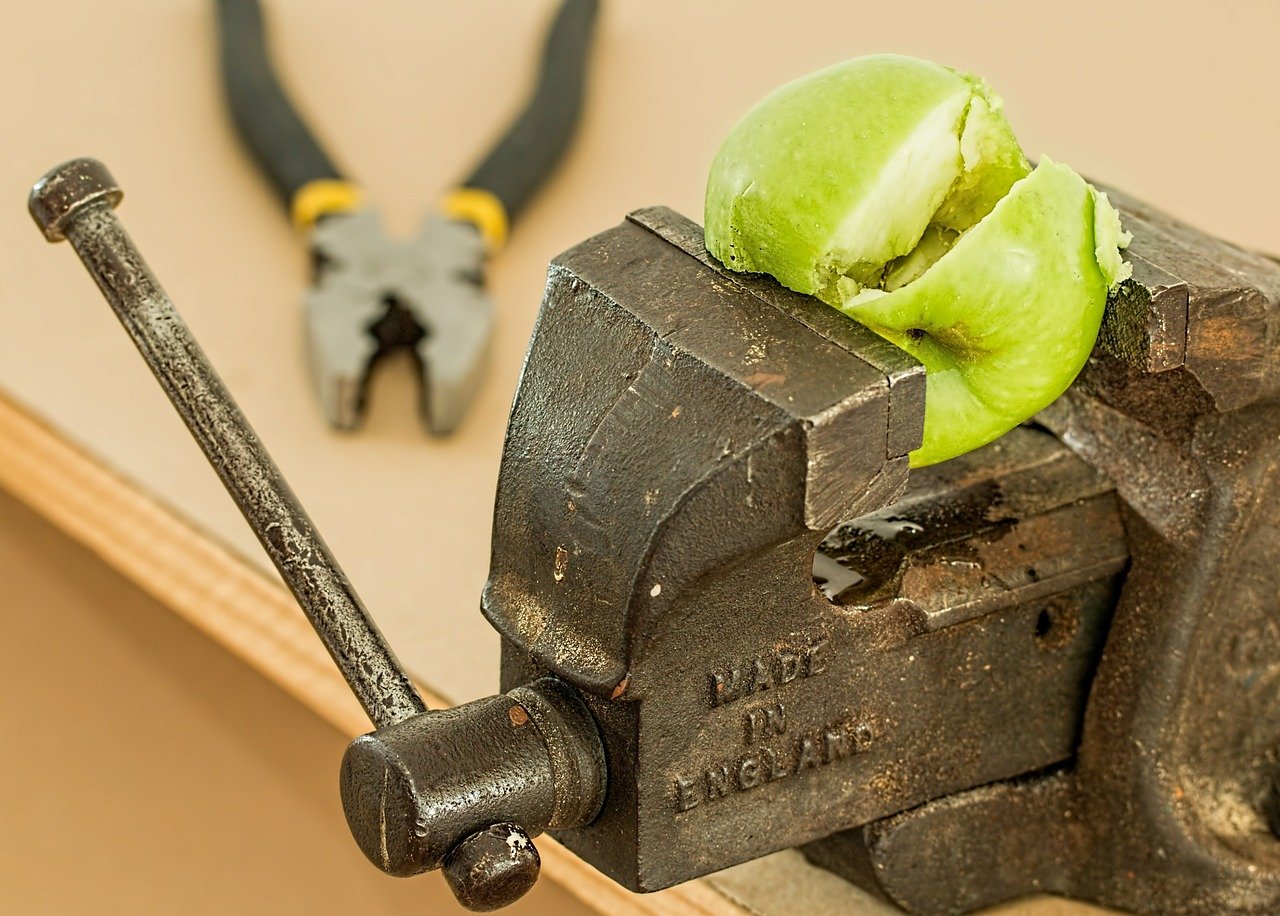
How Can We Treat Stressed Skin?
The obvious thing to do is to reduce the amount of stress you’re under. Methods that have worked to improve stress-related skin issues include meditation, exercise, biofeedback and self-hypnosis.
How to Get Started with Meditation
The cheapest and easiest of the psychological ways of counteracting stress is probably meditation. Despite all the imagery associated with meditation (including in this post… yeah I know), you don’t have to meditate in nature, nor do you have to be religious or spiritual, or flexible enough to sit cross-legged. It also doesn’t cost anything! There are a lot of different forms of meditation. The most popular and best researched one in the West is mindfulness meditation, which is based on Buddhist vipassana meditation. It emphasises focusing on the present and developing a heightened aware of your current state, which stops you from becoming a slave to your thoughts and emotions.
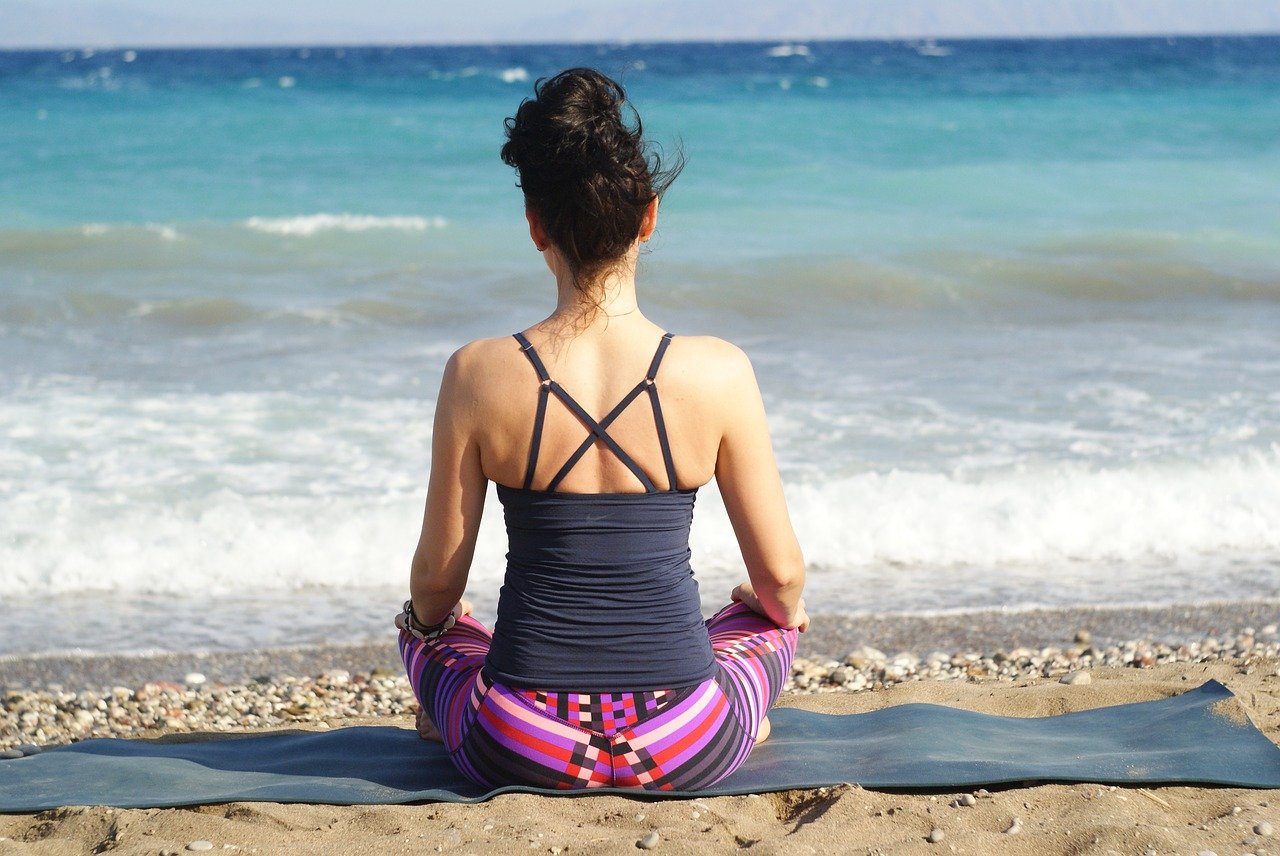
A nice, user-friendly introduction to mindfulness meditation is the Headspace app, which comes with a free 10-day program of 10 minute meditations, as well as a bunch of other programs available if you subscribe for $96 a year. Calm is another app similar to Headspace that has some free guided meditation tracks that progress to a slightly cheaper monthly subscription option ($60 a year). I’ve also just discovered Stop Breathe & Think: Meditate which has both browser and phone apps. You fill in a short survey about your current state, and the app recommends appropriate meditation tracks based on that (longer ones require payment).
There’s a library of free meditations on Insight Timer, which you can search by length, topic or rating, and there are lots of guided meditations on YouTube. Insight Timer also has a customisable timer so you can set up gentle bells when you feel ready to meditate without a guide.
Apart from skin health, there’s evidence that mindfulness has a host of mental health benefits like improvements in anxiety and depression, as well as some physical health effects like lowered blood pressure and reduction of chronic pain. Meditation has also been found to make your brain work better: it causes beneficial changes to brain structure, improves cognitive flexibility and focus, and helps with emotional regulation. I’m going through some rough personal life stuff at the moment that should make me a crying wreck 90% of the time, but meditation has dialed that back to less than 10% which is pretty awesome!
How Else Can I Help My Stressed-Out Skin?
Apart from working on your psychological health, you can also take extra good care of your skin when you’re under stress to reduce damage and help it repair itself. Using a skin-friendly cleanser and sticking to gentle exfoliation is important. Moisturising the skin to give it the lipids it needs to repair itself can also help, especially if you use a cream containing natural skin components like cholesterol, ceramides and fatty acids.
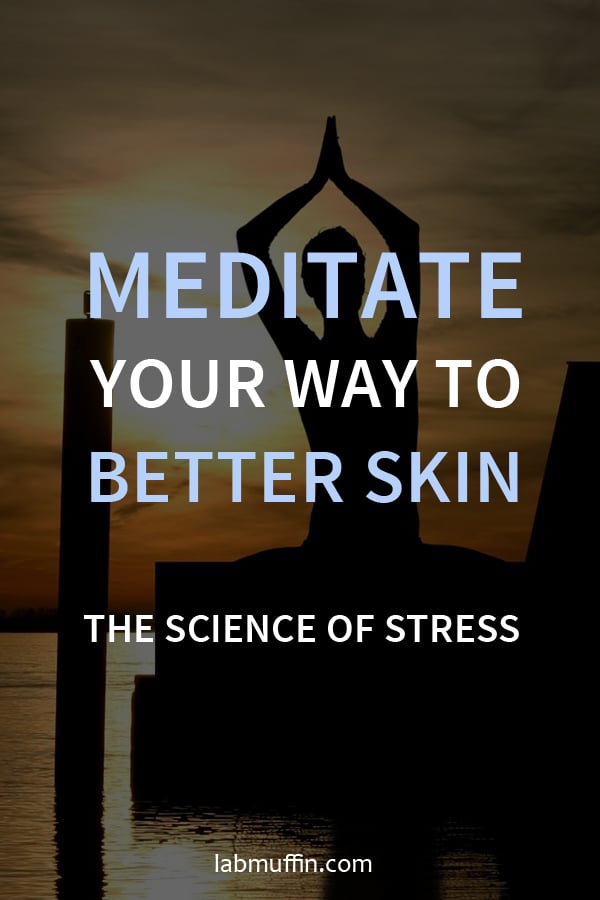
References
A Garg, MM Chren, LP Sands, MS Matsui, KD Marenus, KR Feingold & PM Elias, Psychological stress perturbs epidermal permeability barrier homeostasis: implications for the pathogenesis of stress-associated skin disorders, Arch Dermatol. 2001, 137, 53-59.
A Chiu, SY Chon and AB Kimball, The response of skin disease to stress: changes in the severity of acne vulgaris as affected by examination stress, Arch Dermatol. 2003, 139, 897-900.
EH Choi, BE Brown, D Crumrine, S Chang, MQ Man, PM Elias & KR Feingold, Mechanisms by which psychologic stress alters cutaneous permeability barrier homeostasis and stratum corneum integrity (open access), J Invest Dermatol. 2005, 124, 587-595.




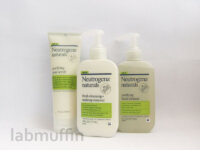
Fantastic Lab Muffin! We love this holistic beauty treatment!
Awesome awesome post, Lab Muffy! And lol and those stock images. I like the one with the chick just lying there haha
I just heard about Headspace a few days ago and was meaning to recommend it to a friend. Thanks for the reminder!
P.s. I wonder if all those ASMR videos I watch at night to sleep is kinda like mediation and making my skin clearer :p
I’m the stressed frog! Also yay meditation! I should start doing it again
I mentioned this on my blog today – I think people can forget about the link between stress and skin care and focus only on products sometimes….
https://gr468.wordpress.com/
I’ve tried meditation and yoga and as much as I enjoy it and know that it’s good for me, I’m yet to incorporate it into a daily routine 🙁
I’ve got the Headspace app (still within the free programs) but had no idea it was so expensive to suscribe!
Stress can really deteriorate the health of your skin at any age. Better get enough sleep and yeah, meditate. Great advice.
hello michelle,
i just discovered your blog and cannot stop reading it. thank you
i am a ‘professional’ meditator and just want to share that it is not necessary to pay to learn how to meditate. for example, there are many buddhist centers around the world that offer free meditation sessions and no, you do not need to ‘convert’.
youtube is a treasure trove of meditation videos. just watch a few until you find the one that suites you best. also, it is not necessary to sit in full lotus position. a chair will do. as long as your back is straight and your body relaxed.
like with many human activities, meditation requires some discipline, but as you correctly pointed out the rewards are plenty. your well-being is priceless.
thank you again, for a wonderful and informative blog
The first occasion when somebody proposed I take up reflection, I was suspicious as well. Sitting with my legs crossed reciting some incoherent mantra for an hour isn’t my concept of fun – or unwinding. Can’t a young lady get a message? No? What’s more, you wonder for what reason I’m pushed? Anyway. I attempted it. Cos what did I need to lose? Stress? I’m not going to mislead anybody. My first reflection turned out badly. I was frustrated to the point that my mind continued straying, I got considerably more worried than previously. Discussion about disappointment. Be that as it may, I continued (I’m more difficult than a donkey and decline to acknowledge rout). When I got its hang, my degrees of stress went path down.
Got to know a lot from this!
Everything was so relatable.
Thank you for sharing!